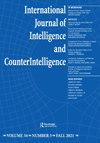超越偏见最小化:通过优化和人类增强来提高智能
IF 0.5
Q4 INTERNATIONAL RELATIONS
International Journal of Intelligence and Counterintelligence
Pub Date : 2023-09-13
DOI:10.1080/08850607.2023.2253120
引用次数: 0
摘要
在过去的半个世纪里,美国及其盟国情报界(IC)一直在努力将认知偏见对情报工作的表面有害影响降到最低。主要的方法是开发结构化分析技术(sat),在简短的培训课程中教授分析师,提供在工作中使用sat的方法,并希望它们起作用。然而,SAT方法存在严重的概念问题,而且缺乏科学研究的支持。例如,最近的几项研究表明,一种被高度推崇的sat——对相互竞争的假设进行分析——要么不能提高判断质量,要么会使其变得更糟。本文概述了SAT方法的关键问题,并概述了一些替代干预措施。这些提议的核心思想是,情报机构应该广泛关注提高情报水平,而不是狭隘地关注最小化偏见。虽然后者有助于实现前者,但过度强调偏见最小化可能会无意中使机构倾向于单一形式的干预,使他们对潜在的更有效的干预措施视而不见。本文概述了两种可供选择的干预措施。第一行侧重于分析后统计优化方法,如重新校准和分析师判断的绩效加权聚合。第二条线侧重于广泛的人类增强计划,通过更好的睡眠、锻炼、营养(包括益智化合物)和生物识别跟踪来优化人类认知。这两方面的努力都需要IC进行大量的科学投资,以检查风险和效果。本文章由计算机程序翻译,如有差异,请以英文原文为准。
Beyond Bias Minimization: Improving Intelligence with Optimization and Human Augmentation
For the last half-century, the U.S. and Allied Intelligence Community (IC) has sought to minimize the ostensibly detrimental effects of cognitive biases on intelligence practice. The dominant approach has been to develop structured analytic techniques (SATs), teach them to analysts in brief training sessions, provide the means to use SATs on the job, and hope they work. The SAT approach, however, suffers from severe conceptual problems and a paucity of support from scientific research. For example, a highly promoted SAT—the analysis of competing hypotheses—was shown in several recent studies to either not improve judgment quality or to make it worse. This article recaps the key problems with the SAT approach and sketches some alternative interventions. At the core of these proposals is the idea that intelligence agencies should be focused broadly on improving intelligence and not narrowly on minimizing bias. While the latter contributes to achieving the former, overemphasis on bias minimization could inadvertently bias agencies toward a singular form of intervention, blinding then from potentially more effective interventions. Two lines of alternative intervention are sketched. The first line focuses on postanalytic statistical optimization methods such as recalibration and performance-weighted aggregation of analysts’ judgments. The second line focuses on a broad human augmentation program to optimize human cognition through better sleep, exercise, nutrition (including nootropic compounds), and biometric tracking. Both lines of effort would require substantial scientific investment by the IC to examine risks and efficacy.
求助全文
通过发布文献求助,成功后即可免费获取论文全文。
去求助
来源期刊

International Journal of Intelligence and Counterintelligence
INTERNATIONAL RELATIONS-
CiteScore
1.00
自引率
22.20%
发文量
102
 求助内容:
求助内容: 应助结果提醒方式:
应助结果提醒方式:


